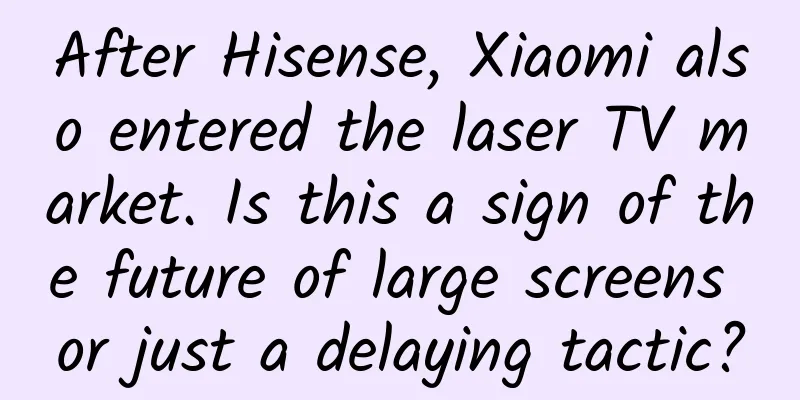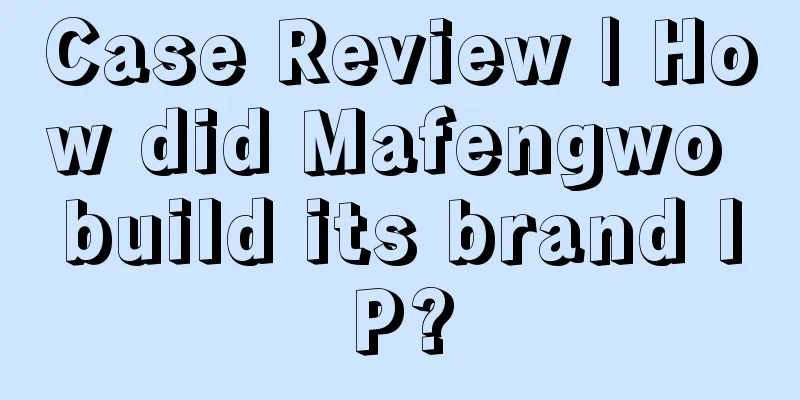Theory of Internet thinking subversion should be stopped in time

|
Recently, Lenovo Group Chairman and CEO Yang Yuanqing's speech at the opening of the 2014 Yabuli China Entrepreneurs Forum Summer Summit has caused heated discussions online. Some people questioned Yang Yuanqing's criticism of the Internet thinking subversion theory, and even believed that this is a challenge to the Internet's innovative thinking and the suffocation of new things. The author cannot agree with this. The author believes that Mr. Yang Yuanqing's views are pertinent and profound, and contain positive warnings for the entire domestic Internet industry. Since last year, the concept of Internet thinking has been over-hyped by some businesses and media, leading to the public opinion that the Internet is omnipotent, Internet thinking is the bible of all industries, and companies that do not use Internet thinking will inevitably be overthrown. This is a theory of industry threats that is made out of nothing. Some insightful and cognitive Internet practitioners and media people are dismissive of this, but this voice still causes psychological panic and impetuousness to a large number of traditional companies and people who lack a certain degree of Internet awareness. In fact, there is nothing wrong with the Internet itself, and there is nothing wrong with Internet thinking. What is wrong are those who exaggerate and even deify Internet thinking. They directly ignore the scientific nature of the Internet and take advantage of the information asymmetry between different groups inside and outside the industry. They exaggerate the role of the Internet in order to pursue fame and fortune and make quick money. What they challenge is precisely the bottom line of the Internet thinking they are promoting. What is the essence of the Internet? If someone says that the essence of the Internet is a platform, a channel, a monopoly, or control, it means that he has a very creative mind. The essence of the Internet is a tool, just like the steam engine, electric light, telegraph, telephone, and electronic computer of the Industrial Revolution, which are tools that help human production and life and improve efficiency. From the history of ARPAnet, we can see that the Internet is a technology-driven product, and it was science and technology rather than commercialization that prompted its birth. In fact, the birth of any great invention is not due to commercial needs, but the interest of scientists and creators or the exploration of the unknown. Those creations born out of needs cannot be called inventions, but engineering designs. For example, Internet thinking is such a design. As a behavioral pattern and business model design, Internet thinking has the advantages of equality, openness and decentralization. It is a good thing if used well. However, there are always some people who pursue "shortcuts" and exaggerate the function of the Internet. They do not pursue technological innovation or product quality. They like to talk about the so-called "Internet marketing" and "fan economics". Their strategy is to focus on users rather than products. They use the depth and breadth of the Internet and mobile social communication to infiltrate marketing concepts into the user's various personal connections like spiritual pollution (the various screen-sweeping posts selling facial masks on WeChat Moments are an example). This kind of quick success and instant benefit thinking is often contrary to the modern entrepreneurial spirit. There is also a view on the Internet that Jobs is a symbol of the times. When Jobs stands in front of the stage, he is the perfect product manager. In fact, the real heroes often stand behind the scenes. I will only give one example here - Alan Mulally. Mulally, who was an engineer, was unknown in Boeing for 37 years. If it were not for the Microsoft CEO candidate controversy last year, I believe that most people would not know the name Mulally. When Mulally, 64, left Boeing and entered Detroit, which was on the verge of bankruptcy in 2006, he steadily managed and successfully saved the last stronghold of the American auto industry through a series of efforts. His engineering spirit and managerial qualities that he had always adhered to impressed consumers across the United States. Seeing this, some people may say that my thoughts are outdated and outdated, and that Mulally's legend does not belong to the current Internet era. But I am just trying to explain that the traditional modern entrepreneurial spirit is not outdated even in the Internet era, and even Jobs is no exception. Most consumers only see Jobs standing on the stage and are unaware of his bitter past; most Internet companies only promote the success story of the iPhone but do not know that Apple has a foundation. Unlike Microsoft, whose foundation lies in long-term software development, Apple's foundation lies in the fact that it is a company that can truly combine software and hardware in the industry. In addition to the amazing hardware process design of Apple products, its software development capabilities are also excellent. Since the launch of the Macintosh computer in the 1980s, its research and development time in the field of graphical interfaces is no less than that of the Windows operating system. After the launch of OS X in 2001, Apple has accumulated good organizational knowledge assets in the development of operating systems, which laid a good foundation for the birth of iOS in the future. iOS is the result of Apple's focus on research and development and the accumulation of historical knowledge assets. Without iOS, the iPhone is just a body without a soul. If so, how much better can the iPhone be than Samsung phones? From this we can see that there is no quick fix to Apple’s success; focusing on core technologies and working hard on internal skills are the prerequisites for its success. When talking about positive cases of Internet thinking, many people like to talk about Nokia and Motorola. What I want to explain is that the key lies in who subverted them. Who subverted Nokia and Motorola? Apple and Google. Then what kind of companies are Apple and Google? They are all large IT companies with a foundation. This shows that the withdrawal of Nokia and Motorola is a phenomenon of replacement of giants in the upstream of the industry, rather than the so-called Internet companies defeating the former giants with small wins and weak wins. The distorted Internet thinking makes people think that as long as an enterprise wears the hat of "Internet", it is an innovative enterprise, and as long as it is covered with the halo of Internet thinking, it has incomparable excellence. In fact, real Internet companies should be those IT companies with core technology, core knowledge, and core values. What is the core? It means that there is dry goods in hand that others cannot copy. Where does this dry goods come from? It must be accumulated through long-term focus on research and development or focus on business. I believe that industry insiders will never forget the Internet bubble that swept the world in 2000. It took only five years from the commercialization of the Internet in 1995 to the bursting of the ".com bubble". During this period, a large amount of hot money poured into the emerging Internet market. The combination of soaring stock prices and concept speculation, coupled with the large-scale use of venture capital, created a hotbed for .com companies to abandon the traditional business model. They once broke through the bottom line of the traditional model and turned their attention to how to increase market share (even if they had never made a profit). In the end, the increasingly fierce bubble subsided and became an unbearable burden for Internet companies. Today, 14 years later, the spell of the Internet thinking subversion theory has re-sung the impetuous spirit of the year. Many Internet companies only see Nokia and Motorola that have been subverted, but forget Nokia's "technology is people-oriented" concept, forget Motorola's 6 Sigma quality management system, and forget that there are also IBM, Huawei, Hon Hai Precision and other companies in the industry that insist on being a century-old foundation. Today's industry needs a wind of purification. Finally, back to the beginning of this article, some people think that Yang Yuanqing's opening speech at the 2014 Yabuli China Entrepreneurs Forum Summer Summit was a veiled criticism of Xiaomi, but I also disagree. Yang Yuanqing once said: We learn from Xiaomi, but we are not Xiaomi. This shows that Lenovo is positive about Xiaomi's business model. China's Internet economy is in the second stage of rise, and mutual tolerance and mutual learning between IT companies will greatly benefit the development of the domestic Internet economy. Lenovo is a pioneer in domestic information equipment, and Xiaomi is a new leader in the field of mobile intelligence. The two have different directions and models, and there is no right or wrong to compare. To borrow a sentence from Professor Sun Yongjie: It doesn't matter where a hero comes from. As a winner of Toutiao's Qingyun Plan and Baijiahao's Bai+ Plan, the 2019 Baidu Digital Author of the Year, the Baijiahao's Most Popular Author in the Technology Field, the 2019 Sogou Technology and Culture Author, and the 2021 Baijiahao Quarterly Influential Creator, he has won many awards, including the 2013 Sohu Best Industry Media Person, the 2015 China New Media Entrepreneurship Competition Beijing Third Place, the 2015 Guangmang Experience Award, the 2015 China New Media Entrepreneurship Competition Finals Third Place, and the 2018 Baidu Dynamic Annual Powerful Celebrity. |
>>: Behind the blockage of TV programs on video websites: Internet TV returns to the licensing era
Recommend
Taichi iOS 8.4 for Mac is now jailbroken
Taiji jailbreak team finally released the iOS 8.4...
Do we need a new theory of evolution?
© The Guardian Leviathan Press: When an explanati...
Data analysis of information flow audience portrait. If you can understand it, I lose!
I have been doing advertising optimization for a ...
The more you remove earwax, the more you produce? It could be a sign of 4 diseases, so be careful!
Recently, the topic of ear cleaning has frequentl...
AARRR model of user growth!
User growth is essentially a precise, low-cost an...
Repairing a cell phone costs two thousand yuan, while buying a new one costs six thousand yuan. Why are official repairs so expensive?
Some time ago, I was walking on the street and se...
Baidu bidding is becoming increasingly difficult, how to deal with it?
(1). In terms of keywords, do you have to list al...
Which one is better for you, the new iPod touch or the iPad mini 3?
Apple 's latest iPod touch uses an A8 process...
Android SDK Development - Release and Use Pitfalls
Preface During the Android development process, s...
How does Baidu Direct charge per click?
The charges are based on clicks, and only valid c...
Xingge's Douyin Medium Video Plan: A single account earns 30,000 Douyin medium video project per month, a 100% hot project
Xingge's Douyin Medium Video Plan: A single a...
Android market cannot wait for a hot small-screen phone
This new iPhone SE may become Apple's best-se...
3 steps to event planning and promotion!
The author summarizes the "three-part theory...
Java Reflection Best Practices
The examples in this article can be seen and down...
The cold wave is coming, what does a double La Niña year mean?
According to the National Climate Center on Octob...









